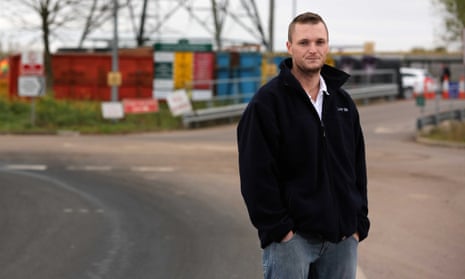A computer engineer who claims he accidentally threw away a hard drive containing a virtual currency worth tens of millions of pounds has promised to give a local council a quarter of the fortune if they help him dig it out of a rubbish tip.
James Howells, 35, says the hard drive of his old laptop contains bitcoins worth about £200m but is languishing in a landfill site in Newport, south Wales.
Howells says both he and the council will benefit if they allow him to dig for it but the local authority is refusing, claiming an excavation would break licensing regulations and cause environmental damage.
“The attitude of the council does not compute, it just does not make sense,” said Howells.
Howells says he threw out the hard drive in summer 2013 when he was clearing out his desk. “I had two identical hard drives and I threw out the wrong one,” he said. “I have to laugh about it now.”
He has repeatedly appealed to Newport city council for help in recovering the machine – and has now offered it a 25% share if workers can pluck it out.
He believes that even after all this time the hard drive would still be in good enough working order. “The outside case might be rusted. But the inside disk, where the data is stored – there should be a good chance that it still works.”
Howells said he had financial backing from a hedge fund to pay for the search so the council would not be out of pocket. And he has a plan.
“The way the landfill operated in 2013 was when a general waste bin was full, it was given a serial number, it was dragged off to the open pit and it was buried. It was also given a grid reference number.
“So if I could access the landfill records I could identify the week that I threw the hard drive away, I could identify the serial number of the bin that it was in, and then I could identify where the grid reference is located.”
A spokeswoman for the council said: “Newport city council has been contacted a number of times since 2014 about the possibility of retrieving a piece of IT hardware said to contain bitcoins.
“The cost of digging up the landfill, storing and treating the waste could run into millions of pounds – without any guarantee of either finding it or it still being in working order.
“The council has also told Mr Howells on a number of occasions that excavation is not possible under our licensing permit and excavation itself would have a huge environmental impact on the surrounding area. We have, therefore, been clear that we cannot assist him in this matter.”
